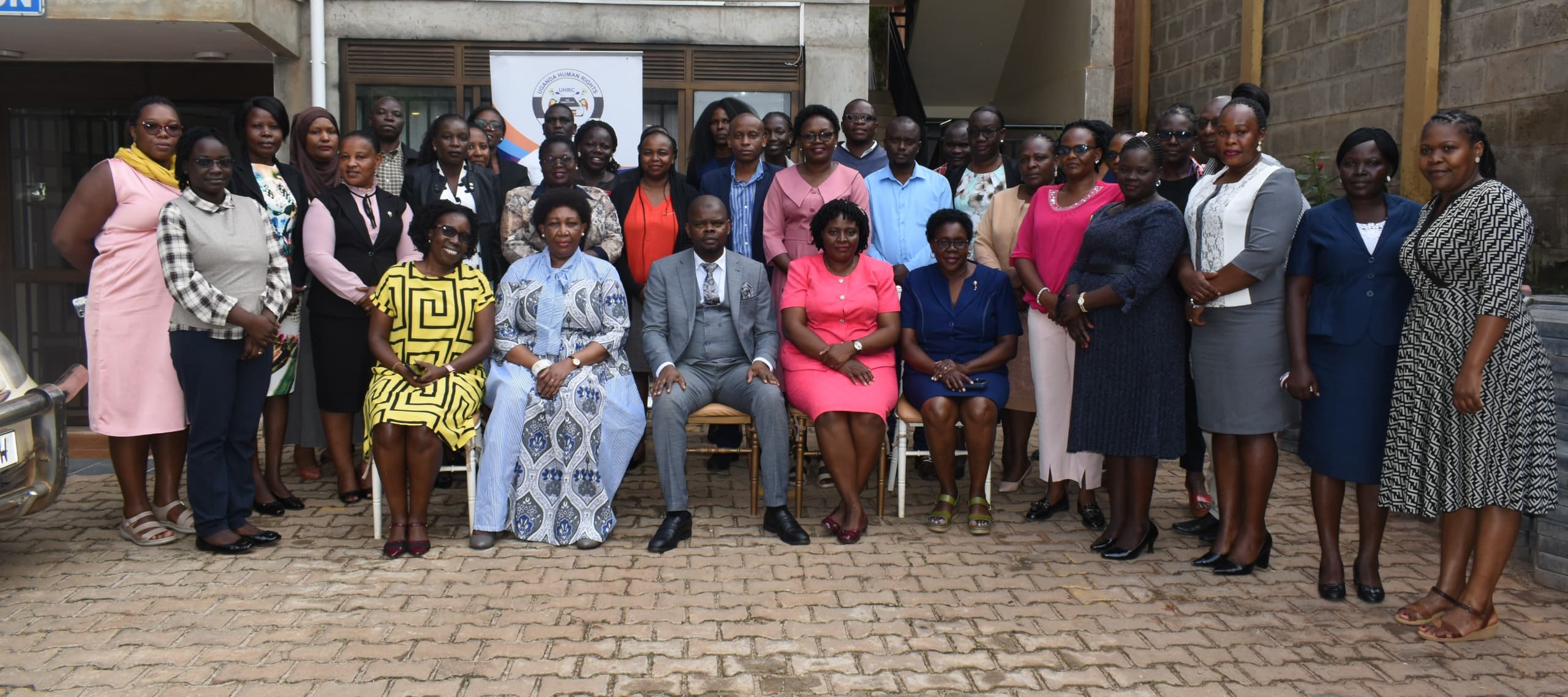
All the Directors, most Principal Human Rights Officers (PHRO), a section of Senior Human Rights Officers (SHRO) and Human Rights officers (HROs) have been trained in protecting Reproductive Health human rights. The training which was officially opened by the Chairperson Hon. Mariam Wangadya on Thursday December 5th, 2024 at Rehoboth Hotel – Kajjansi in Wakiso district, was spearheaded by the Directorate of Monitoring and Inspection.
In her opening remarks, the chairperson noted that one key aspect of UHRC work is understanding the diverse needs of the individuals the institution serves.
“Every person’s situation is unique, and cultural sensitivity, empathy and respect for personal choices are paramount. We must always create a space where individuals feel safe to ask questions and seek the information or services they need,” she said.
She revealed that sexual and reproductive health rights are enshrined under the Universal Declaration of Human Rights, the International Covenant on Civil and Political Rights and the Convention on elimination of All Forms of Discrimination against Women. She said they are also protected under our Constitution of the Republic of Uganda, specifically under Articles; 33 and 34.
While officially closing the training on behalf of the Secretary to the Commission, the Director Research Education and Documentation Mr. Byonabye Kamadi emphasized the need for working together with other partners and to speak out against harmful practices, but respectfully.
“So with the emerging human rights issues and challenges globally, in 1993 the Vienna Declaration and Program of Action (VDPA recognized what they call regional particularities. As you are enforcing human rights, what part of the globe are you. What applies Latin America may not apply to East Africa. So I encourage you to go and revisit the VDPA in order to align with regional particularities,” he said. He highlighted the different topics discussed and key takeaway points from the training before closing it officially. This two-day training was facilitated by the United Nations Population Fund (UNFPA).
